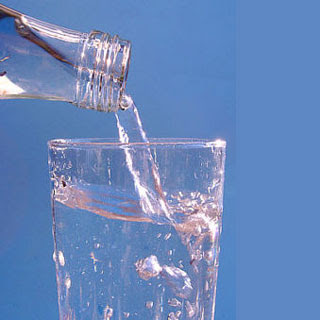 Almost everybody has heard this advice... "Drink at least eight glasses of water a day." Really? I decided that there must be some scientific basis for this recommendation, right? According to a review (2002) by Dartmouth physiologist and medical doctor Heinz Valtin, the advice to consume 8 glasses of water per day (approximately 1.9 liters!) has no apparent basis in the scientific literature. Here is the link to his article in the American Journal of Physiology where he discusses the origins of this advice and whether it is necessary to consume large amounts of water each day.
Almost everybody has heard this advice... "Drink at least eight glasses of water a day." Really? I decided that there must be some scientific basis for this recommendation, right? According to a review (2002) by Dartmouth physiologist and medical doctor Heinz Valtin, the advice to consume 8 glasses of water per day (approximately 1.9 liters!) has no apparent basis in the scientific literature. Here is the link to his article in the American Journal of Physiology where he discusses the origins of this advice and whether it is necessary to consume large amounts of water each day.My interpretation of Dr. Valtin's review is that the average person does not need to gulp down water incessantly all day long. It seems most people end up drinking enough fluid during the day from various beverages including coffee, carbonated drinks and of course water (about 1.5 liters from all sources). So chances are you are already drinking enough water everyday, so perhaps you can stop stressing about it. Of course, if if if you exercise strenuously, work outside, or live in a dry climate then you probably have an increased need for fluid intake.
"... it is hard to imagine that evolutionary development left us with a chronic water deficit that has to be compensated by forcing fluid intake..."So who or what is behind the popular belief that we are all walking around chronically dehydrated and that we are all in dire need of some cool, clean, and refreshing water? Maybe the bottled water industry has something to do with it? The industry spent $168 million in advertising and made over $11 billion in sales in the United States for 2006-2007 (source). But hey... drink water rather than soda or coffee (its free from the faucet and no calories) but don't panic if you forget the precious water bottle on your way to school. Chances are you won't shrivel up like a prune or ruin your kidneys.
~~~BIO26~~~



